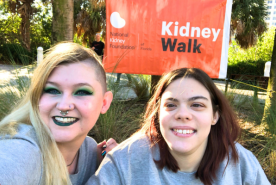I applied for Medicare, when will my Medicare coverage begin?
The effective date of Medicare based on ESRD depends on the type of treatment you choose for kidney failure:
- For home dialysis patients, Medicare backdates to take effect the 1st day of the 1st month of dialysis as long as the patient starts home training before the 4th month of the start of dialysis. Medicare can help pay bills the patient has during that time. If a patient does in-center dialysis at a dialysis center even if s/he starts home training after the first 3 months, Medicare coverage starts the 1st day of the 4th month of dialysis.
- For transplant recipients, Medicare takes effect on the first day of the month you're admitted to the hospital for a kidney transplant or for health care needed prior to a transplant if the transplant takes place that same month or within the following two months.
How do I know if I have worked enough to qualify for Medicare?
In 2023, you get one work credit for each $1,640 you earn. In 2024, you will need to make $1,730 to earn one work credit. You can earn up to four credits a year. If you are currently working when your kidneys fail, you just need six credits in the last 13 calendar quarters to get Medicare. If you are not working when your kidneys fail, you need one credit a year after age 21 to your current age. You must have at least six credits if that is less than seven years. To find out how many work credits you have, call Social Security at 1-800-772-1213. If you don’t have enough work credits, you may get Medicare if your spouse has enough work credits. Children with kidney failure may also get Medicare based on a parent’s work credits.
I have insurance through my employer. Do I need to apply for Medicare also?
If you have a job-based health plan, that plan will pay first for your dialysis or transplant and all other healthcare you need for the first 30 months. The clock starts when you are eligible for Medicare even if you do not enroll in it. After 30 months, your job-based plan will pay second. When you have a job-based plan, you can wait to enroll in both Medicare Part A and B until that 30-month period ends. Ask for Medicare to start the following month so it will cover your healthcare costs when your job-based plan pays second. Your job-based plan may help pay Medicare’s deductibles and coinsurance. Keep your job-based plan if you can, as it may cover things Medicare does not. WARNING: Do not enroll in Medicare Part A without Part B. Doing that will limit when you can enroll in Part B which can create a gap in coverage and your Part B premium could cost more.
I have a Marketplace plan. Should I apply for Medicare too?
I have Medicare only. Can I sign up for a Marketplace plan as a second payer?
No, individual Marketplace plans are only for those without another health plan. You may want to see if you can get Medicaid in your state or contact your State Health Insurance Assistance Program (SHIP) to see if you can get a Medigap plan at your age in your state. If you would like personal help understanding Medicare Part A, Part B, Part C (Medicare Advantage) and/or Part D (prescription drug plans), Medigap plans, and how to enroll in the best plan for you, contact your SHIP. These trained volunteers are experts in Medicare resources and provide unbiased insurance counseling.








